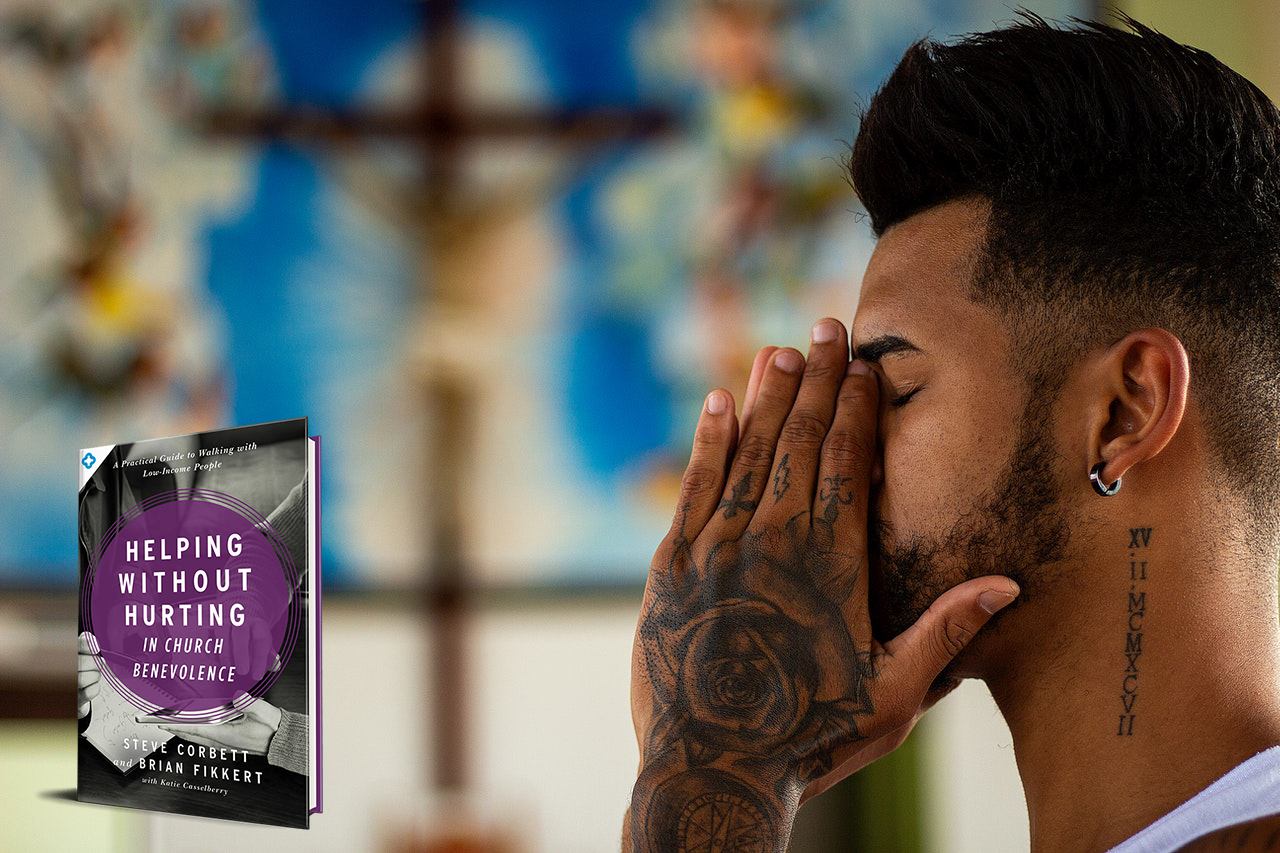For Those Living in Poverty, Social Distance Is Not a New Problem

Avery West
Director of Community Initiatives
This article was originally published on WashingtonExaminer.com on January 4, 2021.
“Human touch is so important,” says Jocelyn Brisson, shelter manager at Watered Gardens Rescue Mission in southwest Missouri.
While many of us sorely feel the lack of human contact during the pandemic, most homeless individuals have experienced this relational loss for years. Human relationship, a look in the eye, a smile, a “How’ve you been?” is what those living on the streets care about most, Brisson says.
And she should know.
“I was a criminal, a 38-year meth addict, and I’ve been homeless most of my adult life,” she says. “My son and I lived in a cardboard box, and I fed him out of trash cans.”
Brisson learned about the power of human relationships at Watered Gardens. “I went there ‘cause I had to do 400 hours of community service. James and Marsha, who ran the place, they just loved me,” she says. “My hands would be all swollen from shooting dope, and they would just love me no matter what. I kept coming back because I craved that love so much.”
On the streets, Brisson formed the kind of relationships that stem from desperation. “You grasp at anything you can that is accepting because you feel all alone.”
Brisson paused. “But human touch is a healing thing. Marsha and I developed such a good friendship. She took the time to know who I really was when I didn’t even know who I was.”
Unfortunately, not all charity workers are so relational. “I’ve been in other agencies where it’s just ‘OK, get in line. Pass the buck. Here ya go. See ya later. Have a great day.’”
At the heart of this error is relief organizations’ misunderstanding of the nature of homelessness.
“There’s not having a place to live, and there’s homeless,” Brisson says. “My mom kicked me out when I was 18, and that was just not having a place to live. When I was deep in my addiction and had burned all my bridges, that’s when I became homeless, because I didn’t have anyone.”
Brisson isn’t alone in holding this view. A study by the Baylor Institute for Studies of Religion cited a Portland, Oregon, nonprofit organization leader saying, “People don’t become homeless when they run out of money. … They become homeless when they run out of relationships.”
A U.K. study by The Rock Trust found that relational programs (mentorship, befriending, etc.) made homeless youth more willing to ask for help, confident in practical tasks, likely to rebuild family ties, and able to support themselves.
Homelessness is less about a lack of money than a lack of relationships. In fact, Brisson’s “rock bottom” wasn’t when she had nothing to turn to, but no one.
When she turned to relationships rather than stuff, good begat good. “Marsha taught me how to balance a checkbook, basic hygiene, how to register my car. You have no idea how scared I was to register my car! But she believed in me.”
Today, Brisson works alongside people who live the life she left behind. She now passes on the gift she was given: vulnerable, messy, human relationships.
Those relationships sometimes require hard conversations. Back when she was on the streets, Brisson explains, “I was always giving in to my son because I didn’t wanna be bothered — I was getting high at the time. One time he said, ‘Do you not love me? You never discipline me.’”
“That’s always stuck with me. So when I’m with my residents, sometimes I get on them and tell them what they need to do to improve.” At the end of the day, they are always thankful for her tough love.
Of course, giveaways are invariably easier, but Brisson insists that mere material gifts just don’t work. “With handouts,” she says, “it’s all about survival mode.”
Today, with a master’s in social work, a fulfilling job, and real relationships, Brisson is no longer just surviving. “Now,” she says, “I’m in living mode.”
This year, let’s not sacrifice relationships for the sake of efficiency. In so doing, we risk robbing that human touch from those who need it most.



